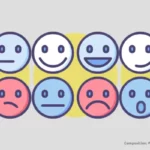
Understanding human behavior has always been complex. For a long time, psychologists limited themselves to observing behaviors and resorting to intuition or logic, but the rise of data-focused methodologies has added a new layer of precision to Psychology. Theories and observations, while valuable, should be validated through clear, measurable outcomes. Numbers, patterns, and evidence are essential to ensuring mental health practices are both practical and trustworthy.
As psychologists aim for more precise diagnoses and effective treatments, statistical tools are becoming essential. How do we determine which therapeutic approaches yield the best results? What psychological techniques prove most effective for different conditions? How can we measure long-term treatment success beyond subjective improvement? Biostatistics consulting supports evidence-based practices by turning complex data into meaningful insights. It helps professionals make informed decisions grounded in reliable analysis.
What does Biostatistics contribute to Psychology?
At the end of the 19th century, pioneers such as Wilhelm Wundt and Francis Galton recognized that the scientific study of the mind required rigorous measurement and analysis. Today, without statistical tools such as significance tests or regression models, complex phenomena—from stress to memory—would remain largely mere speculation. Modern psychology owes its credibility to this marriage of observation and mathematics, which transformed the discipline from a subjective philosophy to an empirical science.
1. Making Sense of Complex Psychological Data
Psychological studies often collect vast amounts of data from surveys, clinical trials, brain scans, or behavioral observations. Without proper analysis, these datasets can be overwhelming or misleading. That’s where statistical specialists step in, applying different methods to extract meaningful conclusions from raw numbers.
They help determine whether an outcome is genuinely significant or just a coincidence. For instance, regression models can reveal how stress levels predict academic performance, showing whether higher stress leads to lower grades or if the relationship follows a more complex, curvilinear pattern (e.g., moderate stress boosting motivation, while extreme stress impairs focus). With the right approach, patterns become apparent, and therapists, researchers, and practitioners can confidently move forward, knowing their work is grounded in reality.
2. Designing Studies That Answer the Right Questions
Intense research begins with a strong design. One of the biggest challenges in Psychology is creating studies that not only collect information but gather the correct information. Designing a survey, for example, requires careful planning, from selecting sample sizes to choosing variables and avoiding bias. Similarly, in a therapy outcomes study, failing to randomize participants properly could make a new treatment seem effective simply because higher-motivated patients self-selected into the experimental group.
Statistical consultants offer this strategic support. They help researchers choose the most effective methods and procedures, ensuring studies are robust, focused, and capable of producing precise results. Whether it’s a randomized controlled trial or a case-control study, their input raises the quality of research outcomes without drawing attention away from the science itself.
3. Ensuring Integrity and Transparency in Mental Health Research
In Psychology, ethics and transparency are non-negotiable. Findings can influence public policies, healthcare guidelines, and therapeutic approaches, so they must be trustworthy. Statistical experts assist by verifying that the data supports the claims being made – and that results are reported honestly.
Measurement error, such as unreliable self-report scales (e.g., ambiguous survey questions or inconsistent participant responses), can severely compromise data integrity, leading to false conclusions about psychological constructs.
By accounting for bias, addressing limitations, and highlighting areas of uncertainty, their work ensures that Psychology remains rooted in fairness and accuracy. This process protects not just the reputation of the researcher but also the well-being of the individuals who rely on psychological care.
4. Validating Treatments That Work
Therapists and clinicians don’t want guesswork, they want proof. Data-driven evidence helps mental health professionals decide which interventions deliver accurate results. When outcomes are supported by proper analysis, treatments are more straightforward to justify and refine.
That’s why collaboration with skilled data teams is so valuable. These specialists work in the background to support psychologists, helping them fine-tune therapy models, assess client outcomes, or evaluate new treatment plans. These services have become a trusted resource for researchers and healthcare professionals who need tailored guidance in designing, analyzing, or reviewing their psychological data.
5. Strengthening the Foundation of Evidence-Based Practice
Evidence-based Psychology depends on more than just clinical experience, it needs measurable support. Using statistical tools allows practitioners to ask smarter questions and get clearer answers. From the lab to the clinic, having someone who can analyze outcomes makes decision-making more effective and treatments more accountable.
Without statistics, even well-meaning interventions risk being based on bias or coincidence. For instance, a school counselor might assume mindfulness exercises reduce student anxiety because a few kids report feeling better. But only with proper data analysis—comparing groups, controlling for external factors—can they prove the trend is real and replicable. Statistics don’t just validate practices; they elevate the entire field by replacing guesswork with precision.
In a world where data has become the new gold, psychologists cannot stay away from this trend. Biostatistics consulting is central to modern psychological research and clinical decision-making. Applying statistical expertise to mental health data strengthens the reliability of findings. As the field of psychology advances, these services are becoming more essential in ensuring that practice is compassionate and scientifically sound, always without losing sight of the human factor.




Leave a Reply